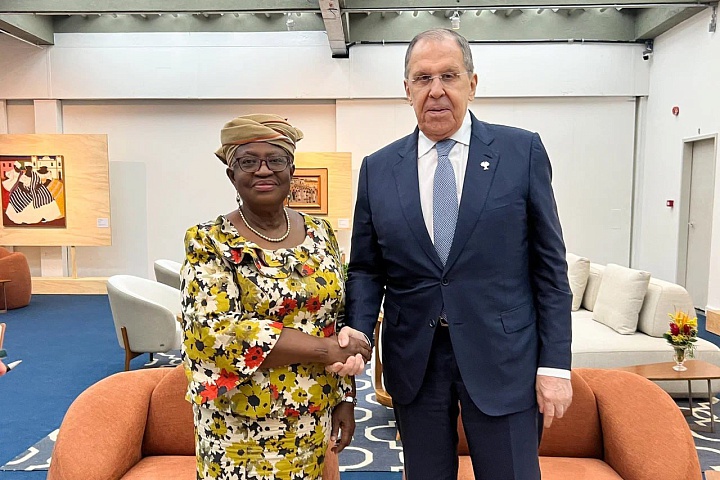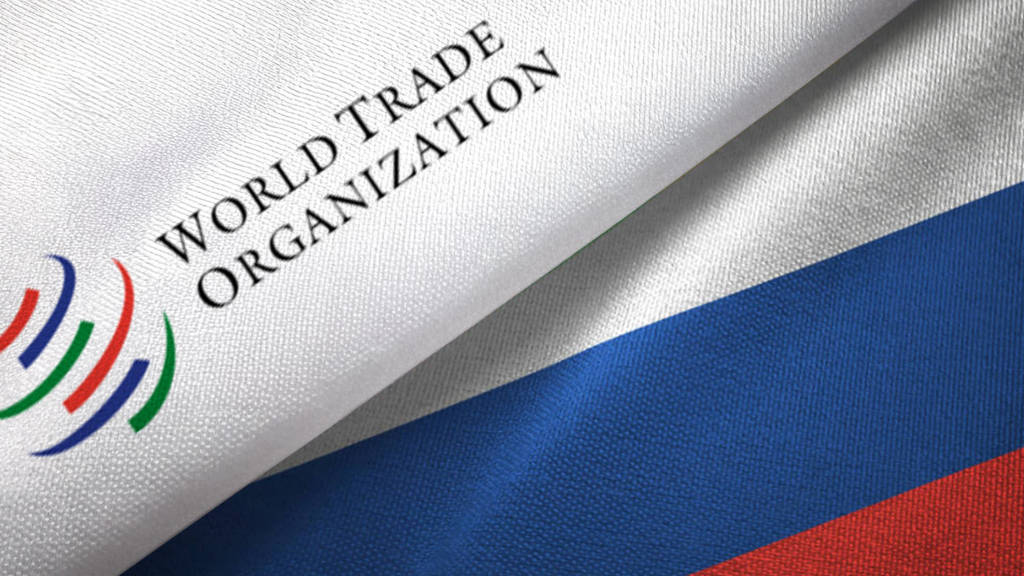The Russian Foreign Minister, Sergey Lavrov, has met with the Director-General of the World Trade Organisation Ngozi Okonjo-Iweala on the sidelines of the BRICS summit in Rio de Janeiro.
They both reaffirmed the need for prompt reform of the WTO based on inclusiveness, non-discrimination, transparency and mutual respect, and exchanged views on several aspects of Russia’s interaction with the WTO Secretariat.
Ms. Ngozi is a Nigerian economist, who has been serving as the Director-General of the World Trade Organization since March 2021. She is the first woman and first African to lead the World Trade Organization as director-general. She was previously Managing Director at the World Bank, Finance Minister and Foreign Minister for Nigeria, and has considerable MNC corporate experience, serving on the boards of companies such as Standard Chartered Bank, Rockefeller Foundation, Twitter and many others. She is also a distinguished fellow at the Brookings Institution with the Africa Growth Initiative.

The World Trade Organisation (WTO) is an intergovernmental organization headquartered in Geneva and is responsible for regulating and facilitating international trade. Governments use the organization to establish, revise, and enforce the rules that govern international trade in cooperation with the United Nations. The WTO is the world’s largest international economic organization, with 166 members representing over 98% of global trade and global GDP.
However, it has lost its way in recent years, mainly due to the deliberate usurpation of its remit by mostly western countries ignoring its authority, bypassing agreed dispute and trade regulatory mechanisms, and imposing unilateral sanctions on other members, without prior discussions with the WTO itself.
There has been criticism that under the current WTO structure, although the WTO’s consensus governance model provides law-based initial bargaining, trading rights are determined through power-based bargaining, favouring Europe and the United States. In recent years, matters of unilateral trade involving sanctions imposed by the EU and US have also deliberately bypassed the WTO, diminishing its governance and authority. Both the United States and European Union are full members of the WTO yet have used their collective funding and budgetary contributions to influence decision-making to their own ends or just ignore its authority altogether. This is why Russia terms sanctions imposed upon it ‘illegal’ as they breach WTO agreements.
While the current role of the WTO in global trade has undoubtedly been undermined, it retains significant support as part of the United Nations, with Russia, China, India and Brazil amongst many others calling for reforms. The global south is generally supportive of the UN and the WTO yet remain frustrated at its current predicament. How this will be resolved is an on-going issue.
It should be noted that groups such as the BRICS have indicated they may develop their own arbitration system, and there has been talk of aligning this with WTO mechanisms yet managed by the BRICS group in terms of multilateral arbitration and decision-making.
Further Reading

 Русский
Русский













